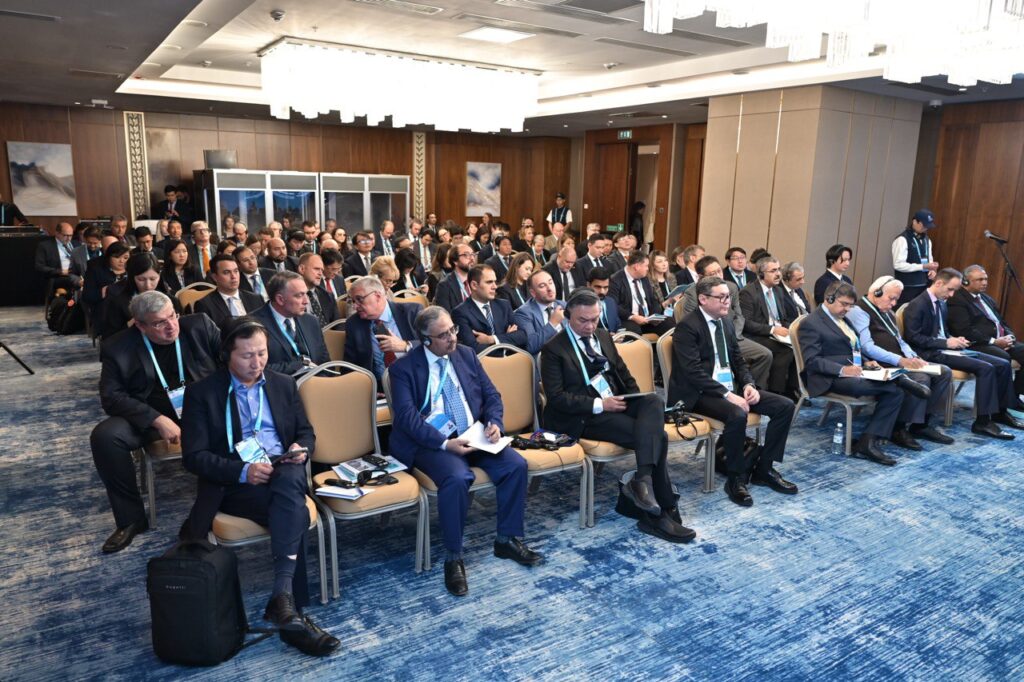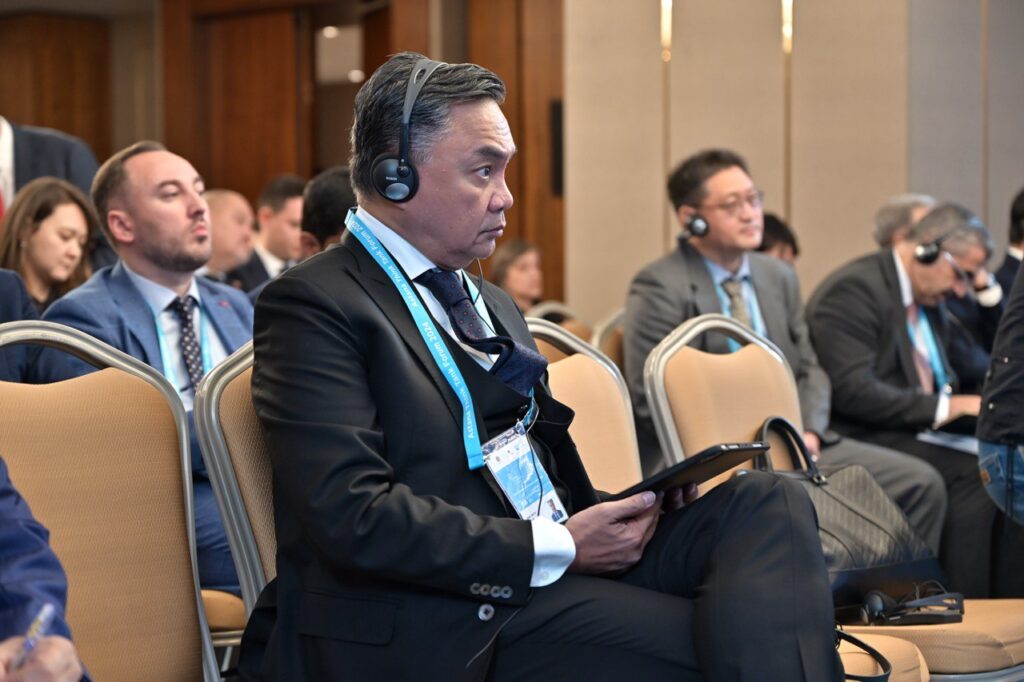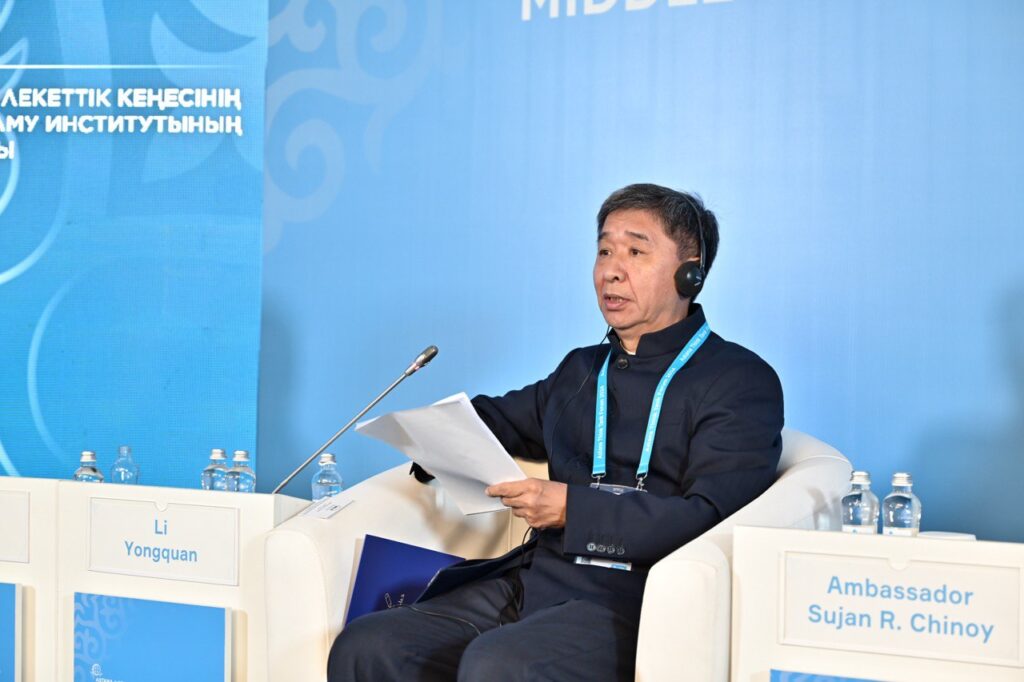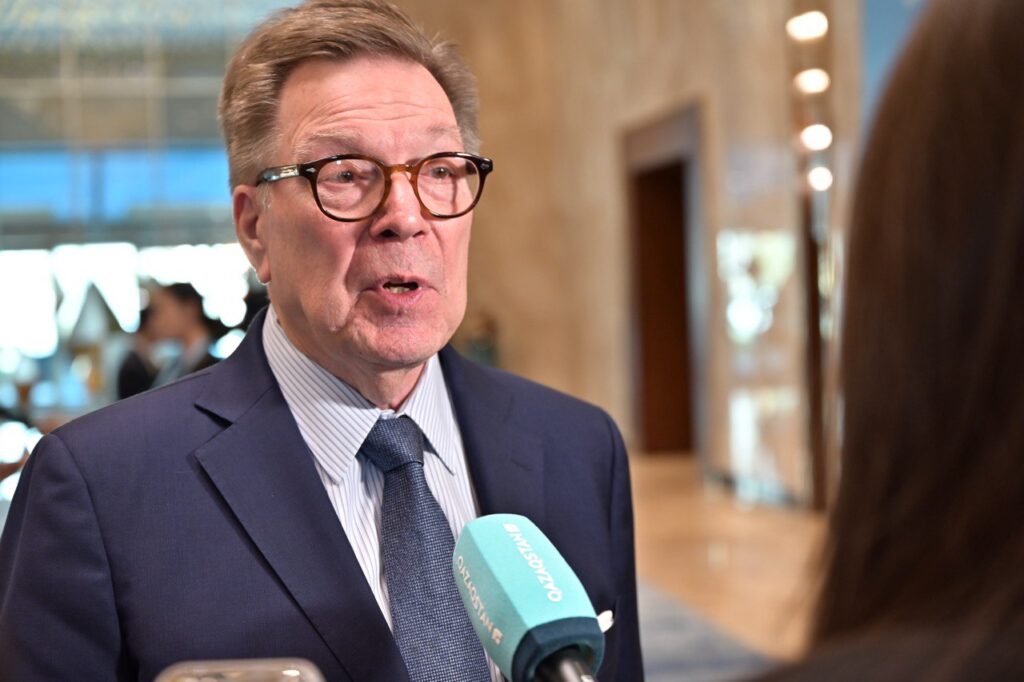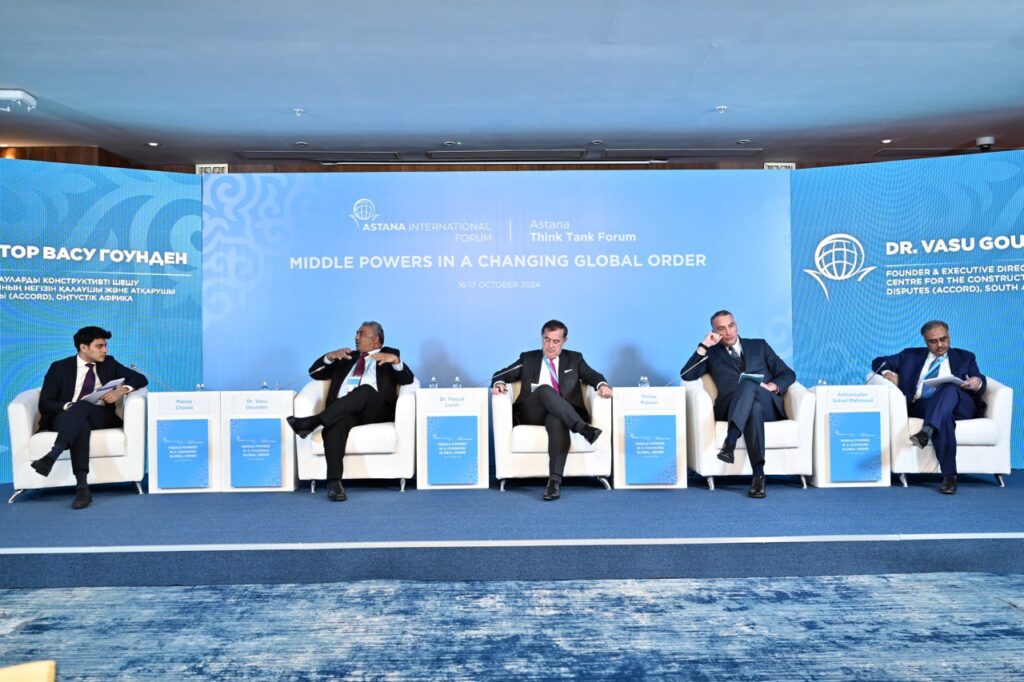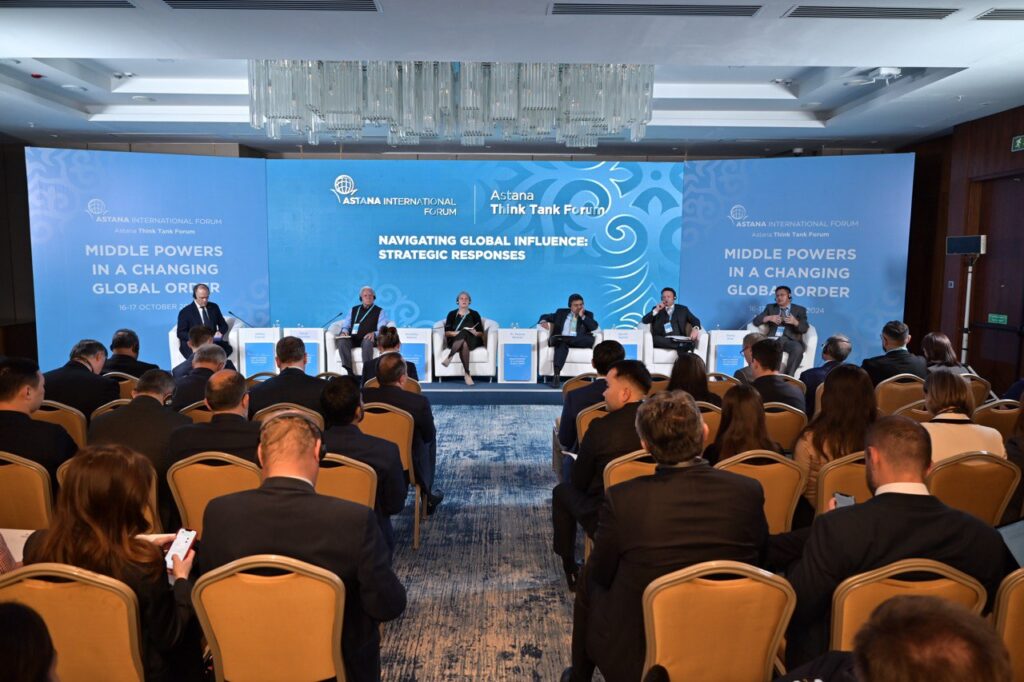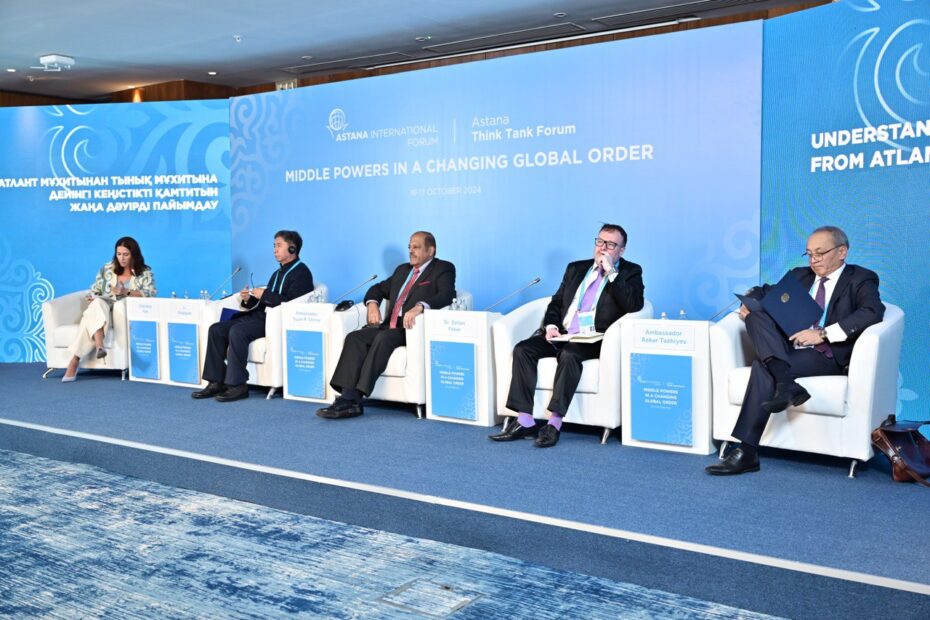On October 16, the first Astana Think Tank Forum on ‘Middle Range Powers in the Changing Global Order: Strengthening Security, Stability and Sustainable Development’ was launched. The event, which is held under the auspices of the Astana International Forum (AIF), is organised by the Kazakhstan Institute for Strategic Studies under the President of the Republic of Kazakhstan.
On the first day, the Forum’s agenda was comprehensively discussed by experts in five sessions.
The first session was devoted to the fundamentals of middle power diplomacy, examining the basic principles and strategies that shape middle power diplomacy in the current complex geopolitical landscape https://kisi.kz/en/the-first-astana-think-tank-forum-2024-focused-on-the-role-of-middle-powers-in-a-changing-global-order-has-commenced-in-astana/
During the second session, the geopolitical, economic, and strategic aspects of interaction across the Atlantic to the Pacific were discussed.
The participants discussed how countries can effectively cooperate in the new reality, emphasising the need for coherent strategies to build resilience, promote innovation and ensure stability on a global scale.
The discussion was moderated by former Bloomberg journalist Charlotte Kan. Li Yongquan, Director of the Institute for Social Development of Europe and Asia at the Research Centre of the State Council of the People’s Republic of China, noted the importance in the current geopolitical environment of bilateral cooperation between Russia and China, which has its origins back in the era of Soviet-Chinese friendly relations. In modern realities, as the speaker emphasised that China seeks not geopolitical rivalry with the United States, but equal partnership.
According to Sujan R. Chinoy (India), Director General of the Manohar Parrikar Institute for Defense Studies and Analyses (IDSA), the world is gradually moving towards an era of multipolarity, which offers middle powers an opportunity to influence the shaping of their own future. In this context, he highlighted the importance of a human-centred approach in international politics.
Dr Zoltan Feher (USA), Visiting Fellow at the Elliott School of International Affairs, George Washington University, Global ChinaHub Freelance Fellow, Atlantic Council, noted the importance of middle powers taking into account the structure of the ‘post-unipolar world’.
‘The stage of unipolarity has passed – today the world is in a transition phase to a new bipolarity, where the dominant role will be played by two superpowers – the US and China. Nevertheless, great opportunities are emerging for the middle powers. The voices of Kazakhstan and a number of other middle powers should be more loudly voiced. Kazakhstan is placing itself on a new geopolitical map through its actions and relevant reforms. We should all welcome actions aimed at Kazakhstan’s implementation of relevant agendas, including the climate agenda,’ Feher said.
In the third session, participants discussed the role of mediator countries in global conflicts. The session was moderated by Manas Chawla, founder of London Politica (UK).
Dr Vasu Gounden (South Africa), Founder and Executive Director of the African Centre for the Constructive Resolution of Disputes (ACCORD), participating in the discussion, suggested that the last three decades, with the rapid changes in the world order, had been a golden period for great power mediators, and that a window of opportunity was now opening for the middle powers.
‘Kazakhstan has taken the initiative to organise a Forum that could be the starting point for efforts to create an alliance of middle powers. By coming together, the middle powers could become mediators in a world of growing conflicts. From this perspective, we as middle powers must build a values-based system, ’ Dr Gounden said.
According to Pascal Laureau, co-founder and president of the Choiseul Institute (France), a country’s success as a mediator depends on such factors as the legitimacy of actions and the presence of a strong leader capable of making decisions. ‘Kazakhstan, as a country that has made a commitment to renounce nuclear weapons and pursues an active nuclear disarmament and non-proliferation policy, has the necessary legitimacy. This allows Kazakhstan to be recognised in the international arena and to be regarded as a recognised leader of the movement for a nuclear-weapon-free world. Legitimacy is also necessary for the recognition and effectiveness of economic and political-diplomatic actions at both the national and international levels,’ Loro pointed out. Geocase Chairman Victor Kipiani (Georgia), meanwhile, noted that in the context of the ongoing conflicts, effective mediation by the middle powers is very much in demand. ‘However, it requires their direct active participation with a focus on their own institutional development and strengthening of international subjectivity. At the same time, successful mediation does not mean that conflict resolution should be at the expense of the interests of small or medium-sized powers,’ Kipiani said. Sohail Mahmood, Director General of the Institute for Strategic Studies (Pakistan), discussing with his colleagues, expressed the opinion that the changing international landscape complicates the opportunities for mediation on the part of medium-sized powers. ‘At the same time, the number of middle powers is growing, which creates a vast field of manoeuvre for them to become active players in the regional arena. Against the backdrop of growing conflicts and shrinking peace initiatives, it is important for middle powers to focus on international mechanisms that contribute to ending rivalry between global powers,’ concluded S. Mahmoud. The expert dialogue of the first day of the Astana Think Tank Forum has continued during the following sessions.
